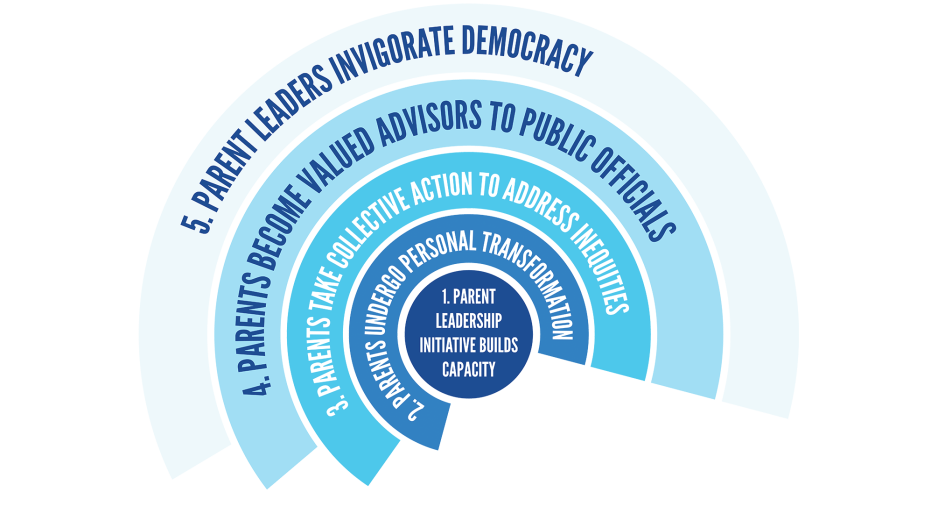
Why Parent Leadership Evaluation
With access to high-quality leadership training and development, parents can become powerful advocates for greater opportunities for children, and the family becomes a vital constituency for improved child and community outcomes.
But, how do we know whether these initiatives are making a difference? And, what exactly is the “difference” they should be making? The Parent Leadership Indicator Framework answers these questions.
Who We Are
We are researchers / evaluators working collaboratively to develop novel, engaging, participatory, and culturally responsive ways to evaluate parent leadership development initiatives. This website will share evaluation tools as they are created and will serve as a hub for both quantitative and qualitative evaluation findings.

The Ripple Effect Theory of Change
This Theory of Change has been drawn directly and deeply from what parent leaders across the country have told us through focus groups and interviews. All our work has been created in partnership with parent leadership initiatives, their graduates, and public officials and community partners who have interacted with them. Their stories described a series of steps in their development that reminded us of ripples in a body of water, moving from a central impetus all the way to the far shores.
A ripple effect can be defined as a gradually spreading influence or series of consequences caused by a single action or event. This ripple effect action begins with stable, well structured opportunities provided by parent leadership initiatives (PLI). These organizations enable parents to gain civic leadership skills and support parent leaders in their work. When these parent leaders speak out, their voices carry the authority of lived experience. They understand how gaps in social, health, and educational services limit their children’s future in critical ways. They learn to work with parents across boundaries of education, race, income, language, and culture.
When elected officials, policy-makers, and community leaders listen to parent leaders, they become more aware of how their actions affect children and families, especially those who lack income or formal education, or whose race, language, or culture have subjected them to racism or discrimination. As public officials and parent leaders increasingly work together on issues and programs, collective action to improve conditions and outcomes for children will gain momentum, resulting in more public forums, more public will to support education, and more formal inclusion of valued parent leaders in decision-making. When civic climate improves, the system will become more democratic, and the whole community will benefit.
A small but growing number of parent leadership initiatives around the country have been successfully demonstrating this ripple effect. Without such dedicated initiatives, opportunities for parents to develop civic and leadership skills are hard to come by. But with access to this kind of leadership training and development, parents can become powerful advocates for greater opportunities for children, and the family becomes a vital constituency for improved child and community outcomes.

